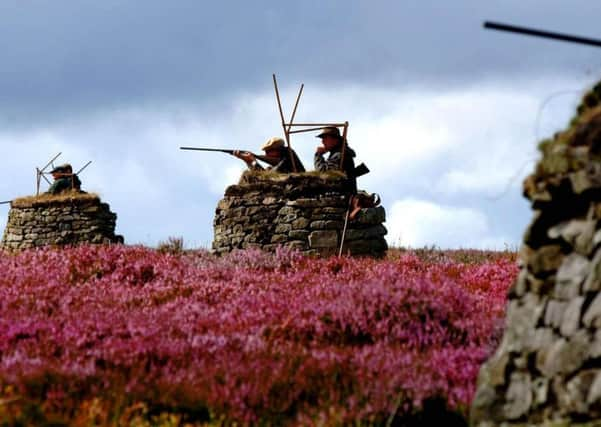Liam Stokes: Nurturing the next generation of gamekeepers


However, today’s gamekeepers are about much more than just ensuring their employers get the maximum and best days’ sport each season. They are conservationists, educators, publicists for country sports and they also, of course, drive the £2bn per annum rural industry that is shooting. So the need for formal training and qualifications has become ever more pressing.
That is why the Countryside Alliance (CA) has taken action to secure the future of shooting after learning that the Government is changing the way apprenticeships are run in 2020, and that the current qualifications in gamekeeping were likely to be lost. And it is why we are asking shoots, employers and colleges across Yorkshire to get involved and help us mould the future of gamekeeping and the new apprenticeship scheme.
Advertisement
Hide AdAdvertisement
Hide AdIt is exceptionally rare these days for a new gamekeeper not to have taken some sort of college course alongside their practical experience. For many, this means embarking on a full-time programme of study at a college like Askham Bryan, Bishop Burton, or Craven, supplemented by working on a college shoot or work experience with local gamekeepers.
For others an apprenticeship is the answer. Employed and earning but still in education, learning from an experienced hand out in the field; an apprenticeship is seen by many as the best route into keepering.
Entirely new standards for apprenticeships, developed by industry, rather than colleges, and approved by the Department of Business, Industry and Skills (BIS), will be brought in 2020. But this puts gamekeeping at a real disadvantage. Rather than having huge employers to drive the new standards, as the car industry has, gamekeepers have myriad employers, each taking on apprentices as and when required.
It wasn’t clear who would take the development of the gamekeeping apprenticeship forward, and if no one did then it could cease to exist in four years’ time. So we set to work, drawing up a proposal for a new, industry-led gamekeeping apprenticeship.
Advertisement
Hide AdAdvertisement
Hide AdWe argued the need for such a qualification and worked with estates across the country to lay out the skills these apprentices would require in a modern world. As we worked with the BIS on our proposal, it became increasingly clear that not only was this a process that had to be done to secure the future of these qualifications, it was actually a fantastic opportunity to completely remodel the gamekeeping apprenticeship and make it really work for the industry.
The Countryside Alliance proposal was accepted last month, making the CA the lead contact in developing the qualification. It is clear that the current apprenticeship framework, for all its worth, can be frustrating. The language can be arcane, using education jargon that is impenetrable to anyone outside the system. Colleges sometimes require apprentices to leave their employers for a week or more at a time to complete their coursework, often at inopportune moments of the shooting or rearing seasons. Some feel the coursework does not sufficiently reflect the demands of the job. This is an opportunity to change all of that.
There is tremendous scope to tailor the new apprenticeship to the needs of industry. The Alliance will now work with the government to establish a “trailblazer group”, that will write the qualification and assessment. The members of this group will decide what training and qualifications trainee gamekeepers really need, and how to direct apprenticeship funding.
Now we need interested employers, colleges and organisations from across the country to join the steering group and support the development of this crucial qualification to get in touch. The National Gamekeepers’ Organisation were the first to join the group, and their expertise will be invaluable, and many of the shoots who supported our initial proposal have already indicated their intention to join.
Advertisement
Hide AdAdvertisement
Hide AdLosing the apprenticeship would be a disaster for shooting in Yorkshire. Not only are gamekeepers crucial to maintaining a healthy rural environment by maintaining the hedgerows and woodlands and controlling pests that threaten agriculture, wildlife and game, they also perform a crucial public service through maintaining fences, footpaths and stiles, reducing rural crime such as poaching and machinery theft, and assisting with wildfire control.
Apprenticeships are vital to ensuring this work continues.
Liam Stokes is the Countryside Alliance’s head of shooting.